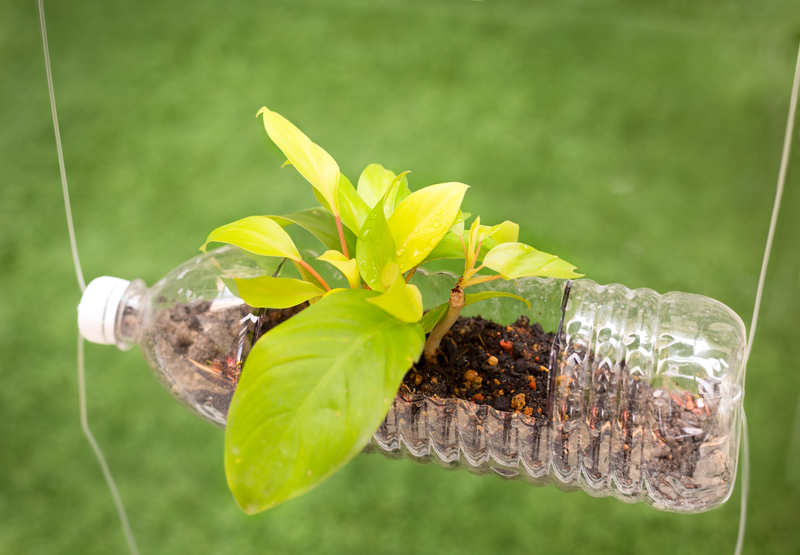The Ecological Fallout from Mismanaged Waste Disposal
In today's rapidly advancing world, the issue of mismanaged waste disposal resonates as a poignant environmental dilemma. Improper waste management not just has dire consequences for the environment but also adversely impacts human health and animal habitats. This article examines the various facets of ecological degradation caused by poor waste management practices and potential strategies to mitigate its adverse effects.
The Scope of Waste Management Issues
Our society produces an overwhelming volume of waste daily, encompassing everything from household trash to industrial refuse. Unfortunately, a significant portion of this waste is not adequately managed. Such mismanagement leads to the accumulation of waste in landfills, illegal dumping sites, and natural ecosystems. The consequences are multifaceted and severe.
The Types of Waste and Their Consequences
Understanding the types and sources of waste is crucial for addressing the ecological impacts of poor waste disposal practices. Waste can largely be categorized into:
- Municipal Solid Waste (MSW): This includes everyday items such as product packaging, grass clippings, furniture, clothing, bottles, food scraps, newspapers, appliances, paint, and batteries. Mismanagement of MSW leads to pollution and the release of toxic chemicals into the soil and water bodies.
- Industrial Waste: Industrial activities generate a plethora of waste, including chemicals, scrap metals, and organic compounds. When disposed of improperly, they contaminate air, water, and land, disrupting ecosystems.
- Hazardous Waste: Waste that presents substantial or potential threats to public health or the environment. If inadequately managed, hazardous waste can cause severe environmental degradation and pose significant health risks.
- E-Waste: Discarded electronic appliances. E-waste contains hazardous materials such as lead, mercury, and cadmium which leach into the environment, causing soil and water contamination.

The Ecological Consequences of Mismanaged Waste
The ecological fallout from poorly managed waste disposal is extensive and can be seen through various forms of environmental degradation:
Soil Contamination
One of the primary impacts of waste mismanagement is soil contamination. Hazardous chemicals from improperly disposed waste seep into the ground, altering soil composition and hampering plant growth. This leads to reduced agricultural yield and affects food security.
Air Pollution
Open burning of waste generates a massive amount of air pollutants, including dioxins, furans, and particulate matter. These pollutants not only degrade air quality but also contribute to global issues such as acid rain and climate change. Poor air quality profoundly affects human health, leading to respiratory and cardiovascular diseases.
Water Pollution
Improper waste management practices result in the pollution of water bodies through the discharge of untreated effluent, illegal dumping, and runoff from landfills. Water pollution affects aquatic life, reduces biodiversity, and compromises the safety of drinking water supplies. Contaminated water also leads to the spread of waterborne diseases.
Biodiversity Loss
Habitats are disrupted due to waste accumulation, leading to a decline in biodiversity. Certain species may become endangered or extinct as their natural habitats are altered or destroyed. Waste in oceans, particularly plastic waste, poses a critical threat to marine life, entangling animals and being ingested, which can prove fatal.
Addressing the Waste Management Crisis
Tackling the problem of mismanaged waste requires a multifaceted approach involving governmental policy changes, community initiatives, and individual responsibility. Some effective strategies include:
Improved Waste Management Systems
Investment in efficient waste disposal systems is paramount. This includes the development of modern landfills and waste treatment plants that minimize environmental impact. Enforcement of regulations to ensure proper waste segregation, collection, and disposal practices can significantly reduce ecological damage.
Promoting Recycling and Reuse
Recycling and reusing materials limits the amount of waste heading to landfills and reduces the need for raw material extraction, preserving natural resources. Community recycling initiatives and incentives can promote a culture of sustainable waste management.
Public Awareness and Education
Educating the public about the consequences of poor waste disposal and the importance of recycling and responsible consumption can lead to more informed choices. Schools and community programs can play a pivotal role in instilling eco-friendly practices from a young age.
Adoption of Zero Waste Policies
Zero waste policies focus on waste prevention by designing resource lifecycle processes where all products are reused. Encouraging companies and manufacturers to adopt sustainable production techniques can reduce resource consumption and waste generation.
Innovation in Waste Processing
Technological advancements in waste processing, such as anaerobic digestion and waste-to-energy conversion, present promising solutions for efficient waste management. Investing in research and development can accelerate the deployment of these technologies at scale.

The Global Perspective on Waste Management
Countries across the globe face challenges in addressing waste management. While developed nations are striving towards sustainable practices, developing countries often struggle with the lack of adequate infrastructure. International cooperation, technology transfer, and financial support can aid nations in implementing efficient waste handling systems.
Conclusion
The ecological fallout from mismanaged waste disposal is far-reaching, affecting all forms of life and the planet's natural systems. Addressing this issue requires holistic changes at both individual and systemic levels. By integrating sustainable practices, enhancing waste processing technology, and fostering environmental stewardship, we can mitigate the adverse impacts and safeguard our environment for future generations. Through collective effort and sustainable innovation, achieving a cleaner and healthier planet is indeed possible.